Israel, Gaza and a veto ‘divorced from reality’
The US veto against a UNSC ceasefire resolution comes as a tragic move that could fuel a new wave of radicalisation
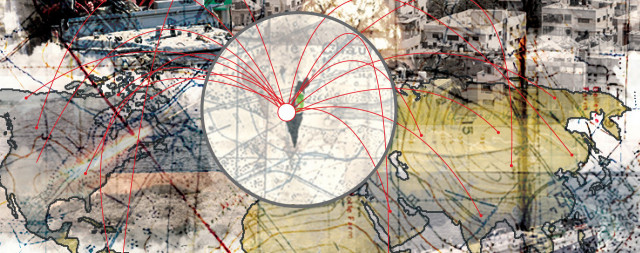
Over two months of unrelenting conflict in Gaza has given rise to a catastrophic humanitarian crisis. Contrary to any signs of de-escalation, Israel has resorted to an aggressive military campaign to root out Hamas. According to a new US intelligence report, nearly half of the 29,000 air-to-ground munitions used in Gaza over the last ten weeks have been “dumb bombs”—unguided and notably imprecise. This is particularly alarming in the context of densely populated Gaza, where unguided munitions pose an elevated threat to civilians. Satellite imagery paints a grim picture, revealing widespread damage extending far beyond the port area into almost every part of Gaza City. Furthermore, the deployment of 'dumb bombs' by Israeli forces raises concerns that the civilian death toll, which already appears to be crossing 19,000, may soon reach staggering records.
In the southern part of the enclave, massive overcrowding coupled with a collapsed healthcare system, has further exacerbated the plight of the people. Independent observers are describing the situation as a 'textbook formula for epidemics and a public health disaster.' Visuals from the strip reveal a stark landscape with scarce concrete structures, as much of the residential buildings have been demolished due to the heavy bombing or bulldozed by the Israeli forces.
Humanitarian conditions are rapidly worsening, with the United Nations (UN) cautioning that shelters are already beyond capacity, forcing many individuals to sleep on the streets. Those who somehow made it to a shelter are lining up for hours for the use of a single toilet. Major cemeteries in Gaza are dangerous to reach so mourning families are burying their dead in informal graveyards dug in empty lots amid an intense Israeli military operation.
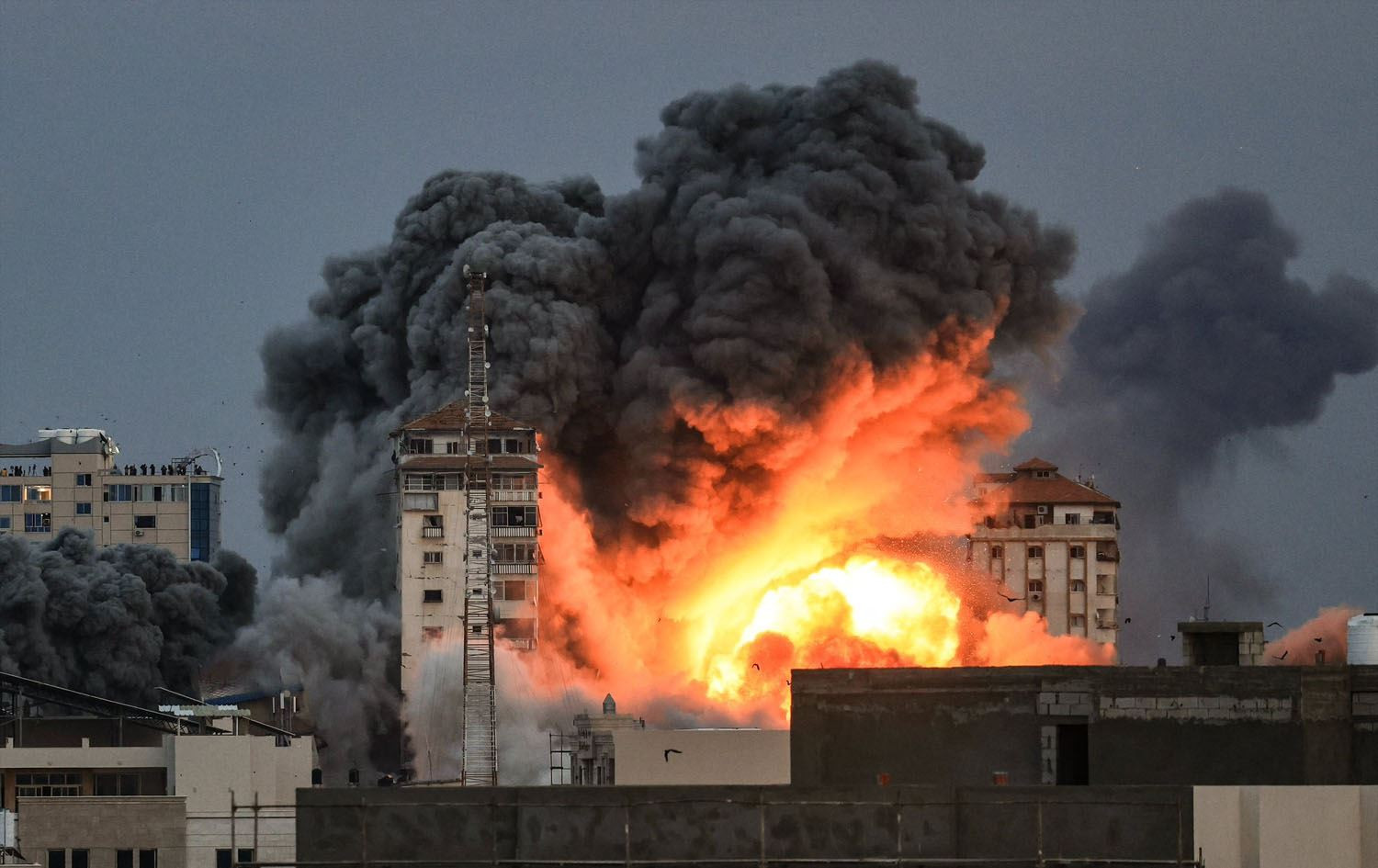
Half of Gaza's 2.3 million residents are currently crammed around Rafah in the southeastern region of the coastal strip, near the border with Egypt. Initially directed by Israel to relocate to the northern half of the strip, civilians have since been ordered to evacuate central and southern areas as Israeli forces continue their offensive against Hamas, a Palestinian political and militant organisation that during a deadly dawn raid sent hundreds of fighters through frontier fences into Israel, leading to a violent incident that resulted in more than 1,200 deaths and scores held as hostages on October 7.
The UN and numerous medical organisations, seemingly helpless, have confirmed that a substantial number of people are now experiencing severe respiratory illnesses and diarrhea, which can be fatal for young children, already high on Gaza’s casualty counter. Additionally, cases of scabies, hepatitis, and, increasingly, malnutrition have been reported due to shortages of food and clean water. Almost all of Gaza's hospitals are operating at minimal capacity due to shortages of medical supplies, staff, equipment, and fuel required to power these facilities.
While this human suffering, death and destruction was being televised before the world, the United States vetoed a UN resolution backed by almost all other Security Council members and dozens of other nations demanding an immediate humanitarian cease-fire in Gaza. This isolated stance at the UN was also indicative of the growing divide between Washington and some of its closest allies over Israel's military actions in Gaza. France and Japan were among those supporting the call for a cease-fire. Whereas, the United Kingdom abstained. As the deadly conflict enters its third month, independent observers characterise the US veto as a 'tragic' move, cautioning against further civilian deaths and destruction.
In a rare move, Egypt and Mauritania invoked Resolution 377A (V) to call for an emergency meeting of the UN General Assembly (UNGA). While it is not legally binding, the resolution empowers member states to make collective recommendations—and it did. The 193-member United Nations General Assembly (UNGA) voted overwhelmingly in favor of a resolution calling for a humanitarian ceasefire in the war-torn enclave of Gaza.
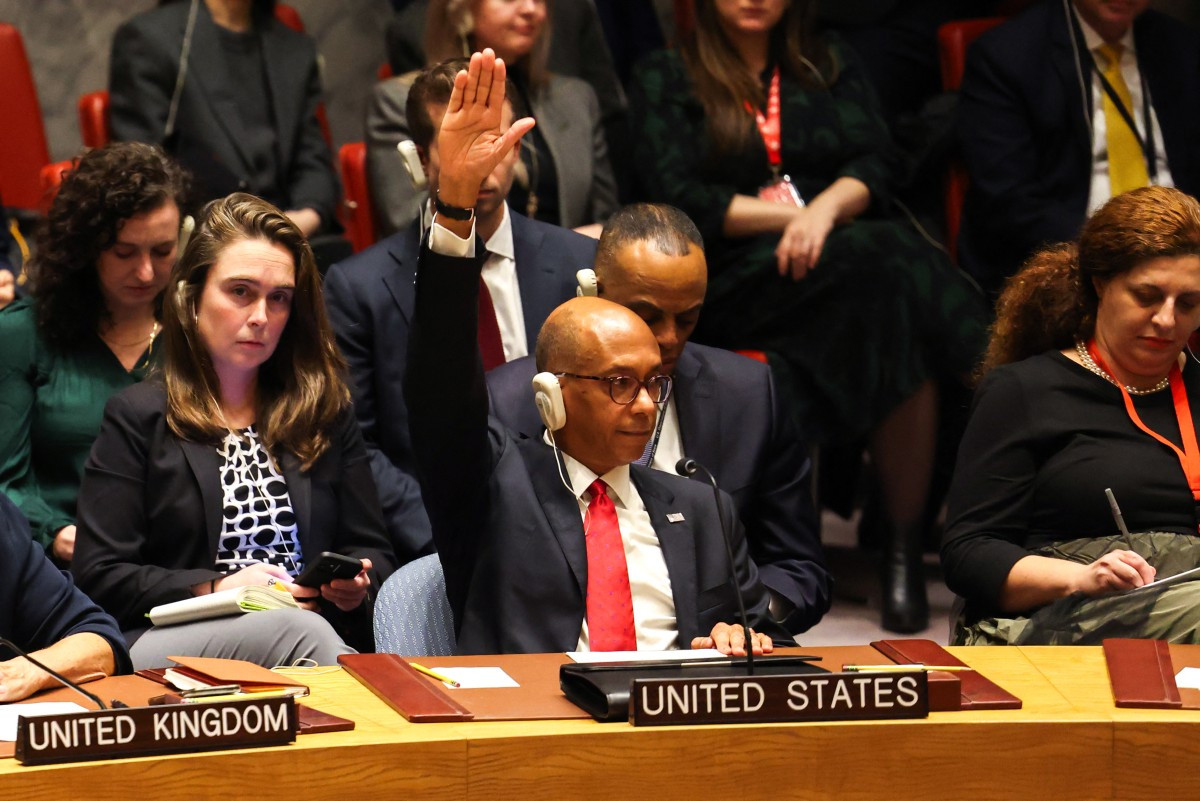
On the ground, nothing has changed since then, but the dynamics in the region appear to be changing at a much faster rate. Israel faces an ongoing border exchange with the Iran-backed Hezbollah – which has now intensified. The Lebanon-based group has deployed explosive drones and missiles to target Israeli positions, with retaliatory Israeli airstrikes hitting numerous towns and villages in southern Lebanon. Adding to the mix, the Houthi militia, in control of northern Yemen and potentially backed by Tehran, has escalated its warnings. They are now threatening to block any vessel en route to Israeli ports, expanding on their earlier cautions for ships navigating through the Red and Arabian Seas.
As the conflict in Gaza broadens its contours, many in the west, including US President Joe Biden appear to be speaking in ways that may indicate to Israel that it is losing the support and sympathy it had gained shortly after the Hamas attack a little more than two months ago. In his most pointed critique of Israel since the conflict's onset, Biden stated, “They’re starting to lose that support by indiscriminate bombing that takes place.” During a political fundraiser, the US president also took aim at the Israeli cabinet, labeling it the ‘most conservative’ government in the country's history.
However, despite the tough rhetoric, Biden's actions seem to contradict his words. While the top boss in Washington adopts a more assertive stance towards Israel, he concurrently supports its war effort, and is yet to take measures that could alter the tactics of the Israeli military in ways that minimise civilian casualties in Gaza.
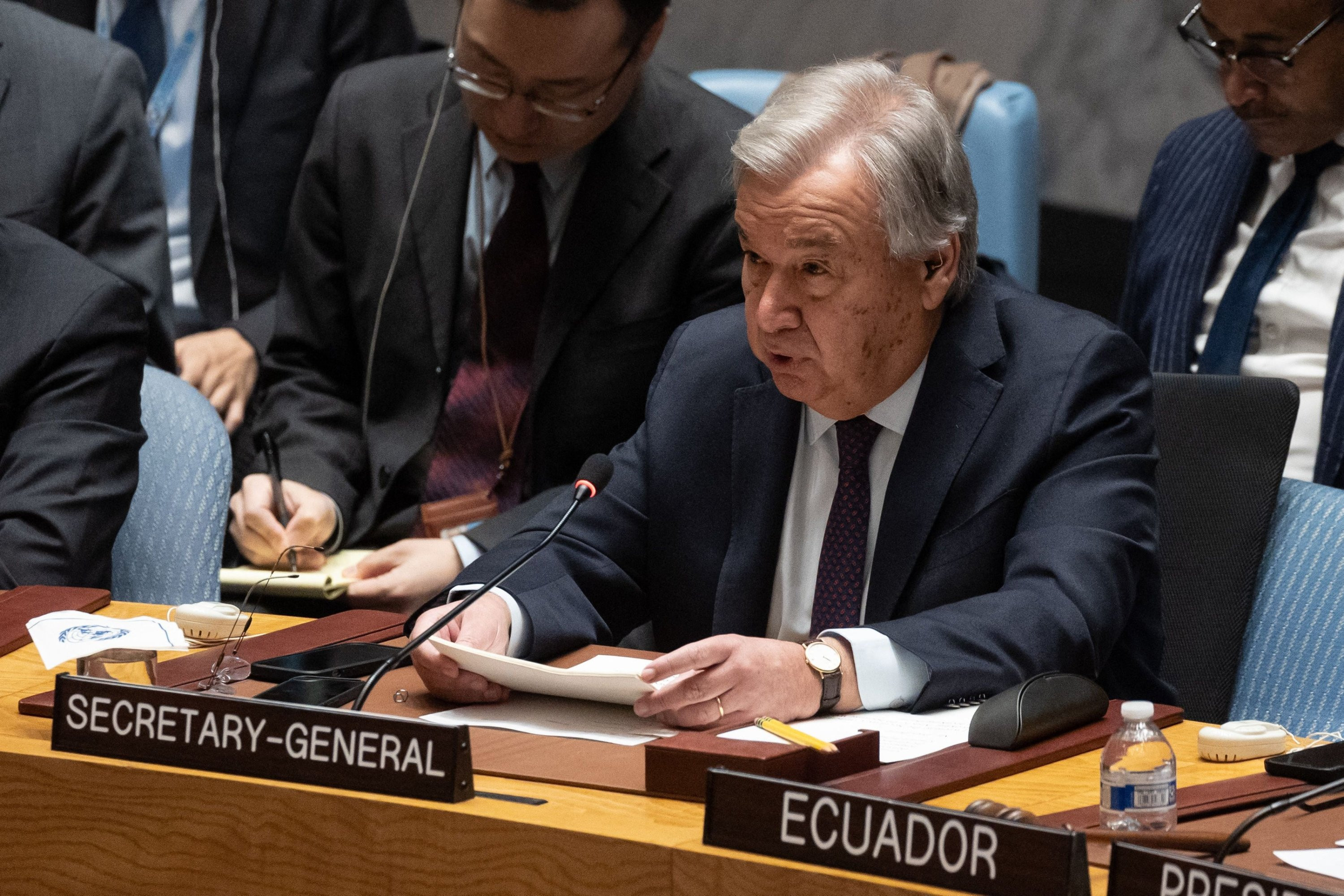
To grasp the situation, the Express Tribune interviewed Rashid Khalidi, a distinguished professor of Arab studies at Columbia University and the bestselling author of ‘The Hundred Years’ War on Palestine’.
Khalidi, known for his expertise in Palestinian identity and nationalism, warned of the potential radicalisation in the Arab and Muslim worlds, as well as among immigrant communities in the West, due to the complete alignment of the US with Israel's disproportionate attacks on civilians. With no resolution in sight, Khalidi expressed concern that the Biden administration’s strong collaboration with and unwavering support for Israel’s war objectives, especially its campaign in Gaza, may negatively impact US relations with Arab and Muslim countries.
Responding to a question about the Western reaction, Khalidi, remarked, “The lack of a robust and immediate Western response to the displacement of nearly 2 million Palestinians in Gaza, coupled with their hardship caused by Israel through the cutoff of essential services, stands in stark contrast to the outpouring of sympathy and support for Ukrainians, highlighting perceived Western hypocrisy.”
The pre-eminent Palestinian American historian, who hails from a Jerusalem family of scholars whose ancestral apartment is steps from the Dome of the Rock, one of the most contested pieces of land in the Holy Land, went on to highlight the stark contrast in Western attitudes toward the Russian occupation of parts of Ukraine compared to the apparent indifference toward Israel’s 56-year occupation of the West Bank, East Jerusalem, and the Golan Heights. Throughout the conflict, both Europe and the US have pledged minimal assistance for Gaza in comparison to their financial commitments to Ukraine.
For decades, the US has advocated for the two-state solution. However, in practice, it has failed to align its actions with its rhetoric. Examining its voting record at the UN reveals a consistent history of opposing resolutions that support Palestinians, with the most recent instance occurring this month. This involved blocking a resolution calling for an urgent humanitarian cease-fire in Gaza – that too at a time when the UN chief himself used a rarely exercised power to caution the Security Council of an impending “humanitarian catastrophe” in Gaza and urged its members to demand an immediate humanitarian cease-fire.
“The US is utterly unqualified to serve as a mediator in any matter relating to Israel because of its extremely partisan and one-sided support for Israel,” said Khalidi. According to the noted New York-based advocate for Palestinian rights, the US has no credibility in calling for a two-state solution, as it has armed and financially supported Israel’s occupation and settlement policies, which is the main obstacle to such a solution.
When asked about the efficacy of the latest UNGA resolution to prevent Israel from committing atrocities in Gaza, Khalidi said: “It will probably not have much effect, except in showing, via a lopsided vote of 153-10, that the US is almost totally isolated globally in its support for the continuation of Israel's war on the Palestinians.”
1701972055-1/Gaza-(5)1701972055-1.jpeg)
Too many red lines crossed
Approximately 150 kilometers north of the Gaza Strip, in Haifa, Diana Buttu, a Palestinian lawyer and former adviser to the Palestine Liberation Organisation (PLO) negotiators, is intimately connected to the conflict. From her window, Buttu can observe Israeli helicopters hovering above her neighborhood – where armed Israeli militias monitor everything, from social media to the news feed of its Palestinian residents. When asked about the situation in Gaza, Buttu, who is a regular New York Times contributor, said: “The people of Gaza are experiencing and we're witnessing genocide. And this is a genocide that is being publicised. It's being televised.”
“The irony lies in the unfolding of this conflict and its atrocities right before our eyes. The bombing of hospitals, churches, and residential areas is a stark reality. What makes it even more chilling is not just the occurrence itself but the unsettling awareness that world powers are taking no action to stop it. In fact, they seem to have given Israel an unequivocal green light.”
Buttu, an outspoken critic of the conflict, has not been immune to its repercussions. Shortly after appearing on Al Jazeera, a Doha-based news channel, that at one point, had been instructed by the US Secretary of State, Anthony Blinken, to dial down its coverage of the conflict, Buttu faced threats for her condemnation of the Israeli bombing of hospitals. “My phone number and other details were published on social media, and I received threats. There were dozens of responses to this Facebook post, suggesting that the police should investigate me and that I should be taught a lesson. Due to my Canadian passport, when the Canadian government learned of the situation, they made it clear that such actions are unacceptable. However, this privilege is only because I have a foreign passport. Without it, one can imagine that I might have been thrown into prison for simply stating that bombing a hospital is illegal.”
“There is a palpable sense of fear here; we can't protest, and we are not allowed to say anything,” Buttu said during a phone interview from Haifa. “I used to live in Gaza, and we cannot turn a blind eye to all of this. I firmly believe that we're next,” she added. Referring to a recent statement by Bezalel Smotrich, who heads one of the religious nationalist parties in Netanyahu's coalition and advocates all-out war in both Gaza and the West Bank, Buttu said, “This Israeli government aims to establish an ethnically pure state.”
Speaking from the Knesset, Smotrich, himself a settler in the Israeli-occupied West Bank residing in the settlement of Kedumim, which is deemed illegal under international law, stated, “David Ben-Gurion, Israel’s first prime minister, should have kicked all Arabs out of the country when it was founded.” When heckled by some Arab members of the Knesset, the far-right leader responded, “I’m not speaking to you, anti-Zionists, terror supporters, enemies. You’re here by mistake, it’s a mistake that Ben-Gurion didn’t finish the job and didn’t throw you out in 1948.”
That said, Israel's aggression is not limited to Gaza; its forces recently concluded an operation in the West Bank, a territory east of Israel, housing nearly 3 million Palestinians. In the first two weeks of December, a two-and-a-half-day incursion into the city of Jenin resulted in 12 people killed and three dozen wounded. According to UN figures, daily settler attacks in the Israeli-occupied West Bank have more than doubled since the Hamas assault on Israel over two months ago.
When asked what it would take for the world to empathise with the Palestinians, Buttu said, “I don't want to exaggerate, but it feels like numerous red lines have already been crossed in this conflict. This might finally prompt the world to act,” said Buttu. Change, she believes, is unlikely to come from within Israel. “Trust me, there are people with genocidal intentions.”
Many Palestinians perceive the US veto at the UN, coupled with the relatively restrained response from the West, as a betrayal. The Biden White House has sought nearly $106 billion in funding for conflicts in Ukraine, Israel, and other security requirements. However, there have been no significant announcements for the Palestinians, apart from a $100 million humanitarian aid package for those affected by the war in the Gaza Strip and the West Bank in October. Moreover, the Biden administration circumvented Congress to provide tank shells without conducting any assessments of whether Israel might be involved in potential war crimes.
Buttu blames the US president of being complicit in the ongoing situation, describing it as genocide in Palestine. “This is very much an American-Israeli war, genocide on Gaza – it's painfully obvious. They have the ability to stop this with one phone call and they've chosen not to,” the Haifa-based Palestinian lawyer asserted.
Expressing her concerns on the recent US veto at the UN, Buttu stated: “I think we're witnessing the end of a few things now. This marks the demise of the international legal system as we know it. If we can't hold Israeli leaders accountable, then the credibility of this international legal system is in question.”
The UN, she emphasised, is entrusted with maintaining peace and security; nevertheless, it has failed in safeguarding the most vulnerable people. “Palestinians, as stateless refugees, remain unprotected.” She further commented, “If the UN cannot ensure the well-being of such vulnerable communities, it raises serious concerns about its effectiveness.”
Referring to past actions taken by the UN, Buttu remarked, “Technically, the UN could take action, just as it has intervened in other contexts to prevent genocides or impose sanctions on violators of international norms. However, with the existing veto power and the dominance of the West, it seems unlikely to occur. Unfortunately, even the head of the UN took 12 days to call for a ceasefire, which is concerning in itself.”
When asked about the contrasting reactions from many Western capitals when comparing the conflicts in Ukraine and Gaza, Buttu remarked, “The evident double standards are glaring in the response, reaction, and sympathy.”
Far from Gaza, in Brussels, about ten days before Christmas, there seems to be a sense of urgency among European leaders to establish a jointly-funded €50 billion lifeline for Ukraine. Despite facing a veto from Hungary, the EU appears determined to find ways to fulfill its financial commitments to the war-torn nation currently under attack by Russia. Analysts note that this level of commitment hasn't been displayed in the case of Gaza, which despite being flattened by Israeli bombing, has only received €100 million this year.
“Unfortunately, in the eyes of the Europeans, Ukraine holds more significance as it is on Europe's doorstep and is perceived as standing against the formidable adversary, Russia. Israel, for them, remains either an ally or a country that they are reluctant to criticise due to historical guilt related to the Holocaust against Jewish people. This exposes the double standards.”
Describing the situation in Gaza as appalling, the Haifa-based lawyer said, “I don't wish war upon anybody. But come to Gaza, and nobody has a normal life. Kids haven't been back in school. There are no functioning hospitals, the health system has collapsed. There aren't even roads any longer in Gaza.”
“How can you be indifferent?” she questioned.
In the aftermath of the Hamas attack, enormous Western support poured in for Israel. Leaders, including British Prime Minister Rishi Sunak, traveled to Tel Aviv to express solidarity with the Israeli people. Approximately 11 days after the attack, the US President also touched down in Israel. Descending from the plane amidst tight security, he warmly embraced Netanyahu and his Israeli counterpart, Isaac Herzog, on the tarmac.
Commenting on the image of Biden and his post-attack statements, Buttu remarked, “This isn't solely an Israeli attack on Gaza; it's an Israeli-American attack on Gaza.” Buttu emphasised that Washington not only provides funds but also supplies weapons used against Palestinians.
On Netanyahu, the Israeli leader, and his resolve to perpetuate the conflict, the Haifa-based Palestinian lawyer expressed a very clear opinion. “This conflict is less about revenge and more about Netanyahu’s survival," Buttu asserted. “He is less in revenge mode and more in survival mode,” she explained. Buttu anticipates the eventual collapse of the Israeli prime minister’s government, foreseeing him facing inquiries over the failures that led to the October 7 attack. According to Buttu, the key to resolving the crisis lies in ensuring the freedom of Palestinians. She asserts that Israel must be made aware that the oppression of Palestinians cannot continue.
"Palestinians must be granted their freedom," she emphasised.
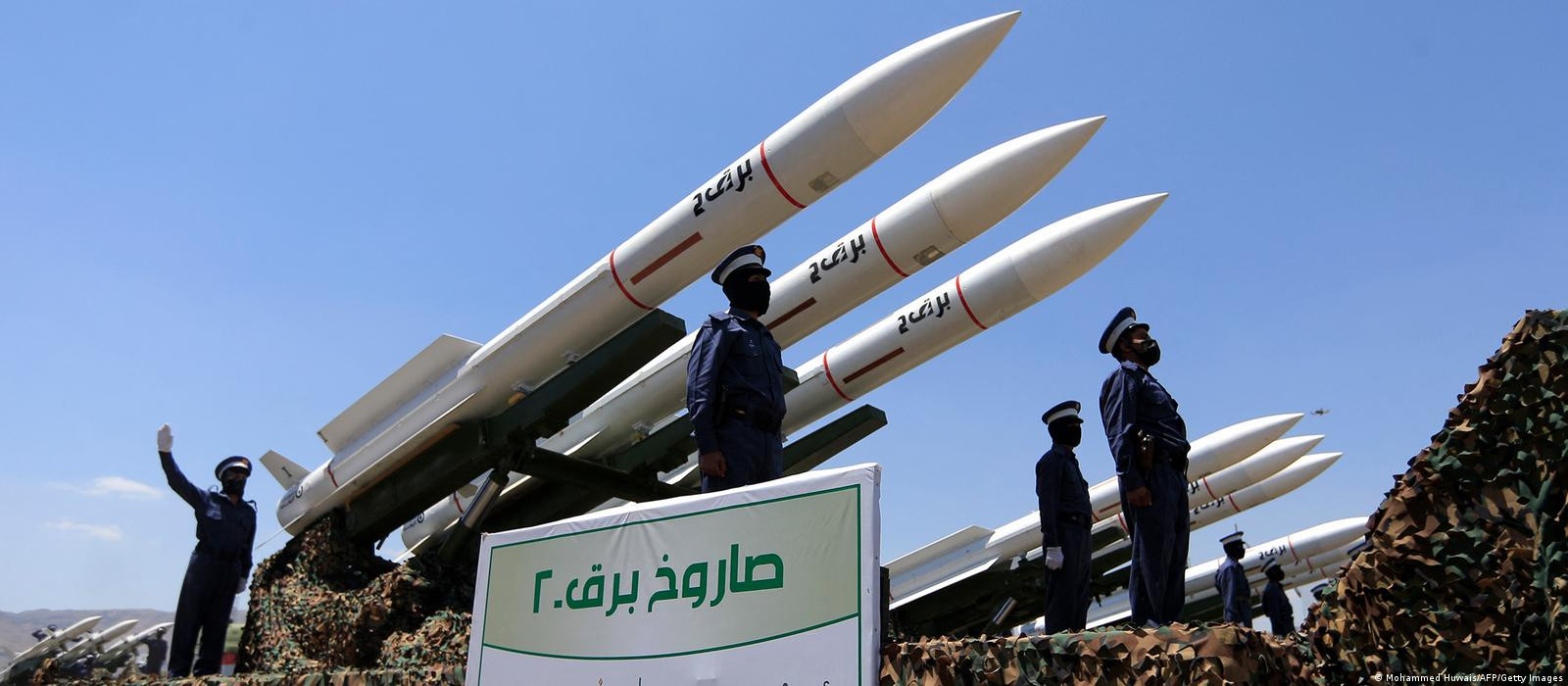
Biden is no exception
President Biden is not the only US leader to support Israel amid criticism of alleged abuses against Palestinians, and he likely won't be the last. Almost half a century ago, Richard Nixon, the 37th President, authorised a crucial arms airlift during the 1973 Yom Kippur War, also known as the October War, the Ramadan War, or the 1973 Arab-Israeli War – a conflict with various names.
Despite being unselfconsciously anti-Semitic, Nixon ended up being loved in Israel for his support during the Yom Kippur War, roughly a year before his presidency was cut short by the infamous Watergate scandal. Many years later, as an elderly statesman and self-declared foreign policy guru, Nixon wrote in his book ‘In the Arena: A Memoir of Victory, Defeat, and Renewal,’ almost prophetically: “No president can ever abandon Israel.” Across 46 presidencies and counting, none has deviated from this stance except Jimmy Carter, who in 2006, authored ‘Palestine: Peace Not Apartheid,’ becoming the first former president to openly critique Israel's policies. But Carter was always an outlier, experts believe, and that's unsurprising.
In the book, Carter voiced concerns about the construction of settlements in the West Bank and Gaza Strip, arguing that these actions impede the prospects for a two-state solution. The title itself stirred controversy as Carter drew a parallel between the situation in Israel and the occupied territories and the apartheid system that once existed in South Africa. This comparison sparked both criticism and debate.
Ronald Reagan, Carter’s successor, while pro-Israel, still managed to end a conflict between Israel and Lebanon. According to experts, that was done over a phone call to then prime minister Menachem Begin. In 1983, a year after the conflict, Reagan told the public his administration halted the sale of F-16 jets until Israel withdrew from Lebanon. Experts believe that all presidents, including Biden, have leverage over Israel in various ways, especially as Israel relies on US weapons to combat Hamas.
Fast forward to Biden's predecessor, Donald Trump; he relocated the US Embassy to Jerusalem, officially recognising it as Israel’s capital. This controversial step marked a departure from decades of official US policy. The opening in 2018 occurred during a particularly tumultuous time for the region, just before what Palestinians refer to as Nakba Day.
When questioned about the current administration's policies toward the region, especially related to the conflict in Gaza, Dr Barnett R. Rubin, former director of studies and senior fellow at the Center on International Cooperation (CIC) of New York University, remarked, “This isn't a policy of the Biden administration; it's a personal policy of President Joe Biden. And we can see that in the growing protests against the policy by members of his own administration, there have been letters written by people in the State Department and the White House. There was a demonstration by White House staffers in front of the White House.”
Dr Rubin explained that the policy strongly mirrors President Biden's personal views, with his views on Israel and Palestinians closely aligning with those of most Americans. These views, he said, were shaped by early experiences during a time when the country was governed by more left-wing leadership before the occupation of the territories in 1967. “President Biden still seems to perceive Israel as a plucky nation surrounded by hostile enemies dedicated to its destruction,” he added. According to Dr Rubin, Biden appears to lack an understanding of why the United States is increasingly isolated globally for tolerating or even supporting what many consider a tremendously disproportionate, some say genocidal, response by Israel.
Commenting on the public sentiment regarding the conflict, which seems to be unfavorable, Dr Rubin stated, “The US is being seen negatively. It appears not just as a supporter but as an ally and co-conspirator with Israel in carrying this out.”
“But I'm uncertain if Biden has the resolve to take a position against Israel,” he mentioned during a phone interview from the South of France, where he is currently located. When questioned about the potential for increased radicalisation, particularly in the Muslim world, due to the atrocities committed by Israel and subsequently broadcasted on social media platforms, Dr Rubin responded, "I believe we certainly can expect an increase in radicalisation."
“I see no sign that President Biden understands that. Obviously, there are many people in the administration who understand that and they are trying to appeal to President Biden to change his policy, but he seems quite set in his worldview of Israel, which seems to have been determined by the movie Exodus,” explained Dr Rubin.
As the conflict in Gaza enters its third month, an increasing number of experts are debating the day after strategy. Commenting on the post-war scenario Dr Rubin said: “The United States says the day after we have to be on the road to a two state solution. The Israeli government staunchly opposes any notion of a two-state solution. So, the question arises: will the United States take any action on this matter? Historically, it has not. The two policies have been in opposition for decades, but the United States has taken minimal action to address it.”
Drawing a comparison between the era when Reagan successfully halted the bombing of Lebanon in 1982 and Biden's efforts to cease the ongoing Gaza conflict, Dr Rubin emphasised that the former was a war of choice. In contrast, the current Israeli assault is framed as a response to the worst atrocity committed against Jews since World War Two. “There is genuine fury and determination to respond as forcefully as possible. This is what they call a war of no choice rather than a war of choice,” he explained.
When asked about any advice for the president, Dr Rubin, a prominent expert on Afghanistan and South Asia and the author of eight books, was unequivocal about a potential strategy for Biden to halt the ongoing conflict. He stated, “I would say you have to cut off the supply of weapons to Israel. If we continue to arm them for certain actions, we can't prevent them from carrying them out. And I would urge Israel to release Marwan Barghouti from prison.”.
Explaining further, he noted that Barghouti, often referred to as ‘Palestine’s Nelson Mandela,’ could play a crucial role in implementing an agreement. Over the years, the former leader of Tanzim, a militant faction of Fatah, has positioned himself as the sole individual capable of uniting rival Palestinian political groups. Despite spending two decades in Israeli custody, he retains a reputation for integrity and heroism in the eyes of Palestinians and at one point had a fairly serious chance of winning over Mahmud Abbas, the current President of Palestinian Authority.
The long view
With the assault on Gaza intensifying on several fronts, observers see no light at the end of this long tunnel. Ashok Swain, a professor of peace and conflict at Uppsala University, cautioned that there is no immediate solution to the current crisis. “Given the nature and the intensity of the conflict, it will maintain a prominent position in global geopolitics for the foreseeable future,” said Dr Swain.
According to the Sweden-based academic, the complex situation in the enclave presents a significant challenge to the credibility of the West-led liberal international order, which advocates for human rights, safety, and security of individuals. Dr Swain also expressed frustration with Middle Eastern countries for their inaction.
Commenting on the popular opinion in the region, Dr Swain said: "There is enormous anger among the people in the Middle East, but their leaders seem to be silent, possibly reluctant to speak out due to their heavy reliance on the US for security."
“The US hegemony in the region may prevent them from speaking against it,” he added. While the conflict hasn't regionalised in terms of state actors directly participating, it has assumed regional dimensions through various manifestations, including a growing street-level opposition to both the US and Israel across the region.
"Israel's assault may not result in a clear victory over Hamas. The group is gaining strength and popularity, even in the Arab world and the West Bank," stated Uppsala University’s Dr Swain. He added that Israel is losing goodwill and inadvertently strengthening Hamas through its actions.
Meanwhile, according to Zoran Kusovac, a geopolitical and security analyst, Israel's land incursions, bombs, and information blackout imposed on Gaza won't necessarily completely dismantle a well-prepared Hamas. In an earlier analysis for Al Jazeera, Kusovac, a war correspondent with over four decades of experience, stated that Israel's ground attacks yield 'lots of bang' but achieve little success.
Israel’s leader, Netanyahu, the Sweden-based academic said, is prolonging the conflict for his political survival. “Once the conflict concludes, Netanyahu will likely face scrutiny regarding his connections to Hamas and his support in propping up the group.”
When asked about the potential outcome of the conflict, which has left over 51,000 wounded and claimed the lives of more than 19,000 people, including half of them being children, Dr Swain offered a grim perspective: 'Expect more bloodshed and violence before seeing any resolution."
Regarding the US standing in the world, especially in the Muslim world, Dr Swain remarked, “Washington has lost whatever little credibility it had in the Muslim world and even in the Global South. Biden particularly has caused significant harm to the liberal order.” “While the rulers in the Muslim world may support him, the people may not,” he explained.
Extremes on both sides
With the conflict in Gaza continuing to grip global attention, former Middle East correspondent and national editor for the Chicago Tribune, Storer H. Rowley, attributes the ongoing escalation to ‘extreme positions’ on both sides. Rowley, who reported from the region in the '90s and has closely followed the conflict for years, contends that both Hamas and the Israeli government embody radical perspectives, hindering the prospects for peace.
“The rise of extremists is evident on both sides. Netanyahu's government, populated by notably anti-Arab, pro-settler cabinet members, shows little interest in a two-state solution. Instead, they are actively seeking to annex parts of the West Bank, eliminating any possibility for two states and two peoples. On the other hand, Hamas extremists persist in their reckless anti-Israel stance, advocating for the destruction of the Jewish state.”
According to the former Middle East correspondent, Hamas is not inclined towards peace. “Hamas isn't interested in sharing the land; they operate as a terrorist group.” Describing the Hamas attack as a tragic assault on civilians and the most severe attack on Jews since the Holocaust, Rowley said: “In my opinion, the only viable way forward is to eliminate or, at the very least, significantly weaken the perpetrators until they no longer pose a military threat to Israel. However, my significant concern lies in the current conduct of the war in Gaza.”
Rowley cautioned that the rising death toll of thousands of civilians, many of whom are Palestinians unrelated to the initial attack on Israel, could elevate the risk of fostering the next generation of extremist fighters harboring animosity towards Israelis. “This approach may inadvertently breed a new generation of individuals motivated to engage in conflict,” the former correspondent stated during an hour-long Zoom interview from Evanston, where he is based.
Rowley, who interviewed Netanyahu in 1996 when he became prime minister for the first time, beating veteran politician and later president Shimon Peres, said: “The idea that you can keep the people of Gaza bottled up in an open-air prison and continue to take land and crack down on Palestinians in the West Bank is a recipe for endless war.”
“It doesn't make Israel safer. It makes Israel and Palestinians more at risk. And so if that policy was going to work, Netanyahu had 15 years to try it, and it only led to five wars and thousands of people killed,” he highlighted.
Having extensively covered the region during his reporting days, Rowley believes that the wounds of the current conflict may require a considerable amount of time to heal. “It may take years for the animosities of this particular war to pass. But the only way to solve this problem, in my view, is two states for two people. You have to show Palestinians there's a reason to stop fighting and give them hope that there's a potential for economic prosperity and safety for their children.”
Commenting on the Oslo Accord signed in 1993 on the South Lawn of the White House between Israeli Prime Minister Yitzhak Rabin and Palestine Liberation Organisation leader Yasser Arafat, Rowley expressed that there was optimism at the time. However, he noted that the optimism was cut short when an extremist from the Israeli side assassinated Rabin, who many consider as the best peacemaker Palestinians could have wished for. And whatever little was left of that ‘hope for peace’ and ‘optimism for a better future’, Rowley said, was later blown up by suicide bombings on Israeli buses – a hallmark of the Palestinian revolt at the time.
When questioned about the declining international support for Israel, especially after an overwhelming majority of nations voted in favor of the ceasefire at the UN, Rowley commented, “It's dangerous for Israel to dismiss the concerns of the world.” In the long run, he added, Israel is putting itself at risk by isolating itself from its strongest supporter, the US. “You're already witnessing in Congress a growing number of Democrats in the Senate pushing for a bill that would explicitly state that if the United States is providing military aid to Israel, it must adhere to international and humanitarian law.”
Expressing concerns over the consequences of unrestricted US support for Israel in the context of the recent conflict, Rowley emphasised the need for a balanced approach, recognising the rights of both Israelis and Palestinians to the land, advocating for a more forceful stance on Israel's actions, and stressing the importance of working towards a peaceful solution to avoid continued bloodshed that could impact not only Israel but also America's global support and security.



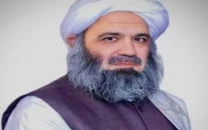















COMMENTS
Comments are moderated and generally will be posted if they are on-topic and not abusive.
For more information, please see our Comments FAQ